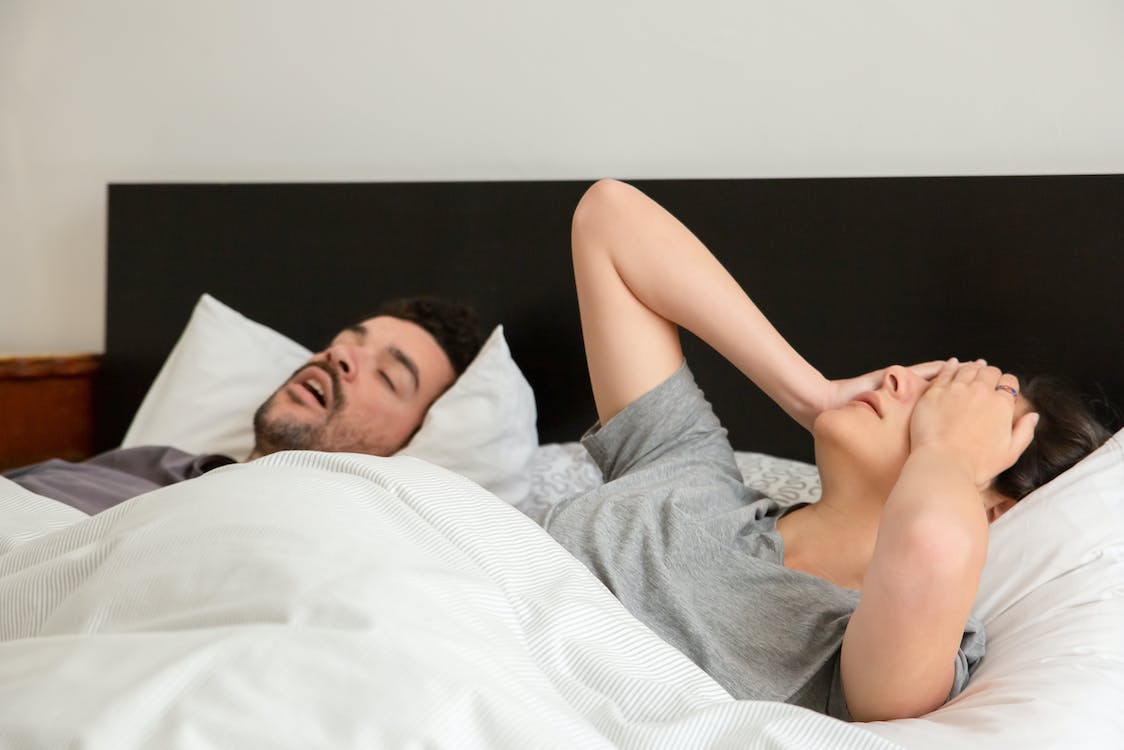
Snoring: It’s the nighttime nemesis that can disrupt the peace of any household, leaving some sleep-deprived and others in search of a cure. Not everyone snores, and not all who snore do it consistently. But when the snores are loud and persistent, they can signify more than just a noisy nuisance; they may hint at underlying health issues such as sleep apnea.
If you’re a snorer or sleep next to one, there’s good news: The solution could lie not with a sleep specialist but with a trip to the dentist. Yes, you read that correctly—your dentist might hold the key to silent nights.
Understanding the Relationship Between Dentistry and Snoring
Before we dive into solutions, let’s look at the link between snoring and dental health. Snoring often happens when throat muscles relax during sleep, causing a partial airway blockage. That leads to the soft tissues vibrating and creating that unmistakable snoring sound.
Sometimes, snoring is a sign of something more serious called obstructive sleep apnea (OSA). It’s a condition where your breathing repeatedly stops and starts during the night. While not all snorers have sleep apnea, knowing the difference between snoring and sleep apnea is crucial, as the latter requires a different level of medical attention.
How a Dentist Can Help
With their expertise in oral health and the anatomy of the mouth, throat, and jaw, dentists can offer various treatments that may significantly reduce or eliminate snoring. One common solution a dentist might suggest is a Somnodent oral appliance for sleep apnea. These custom-fit devices help support the jaw in a forward position, keeping the airway open and preventing the collapse that leads to snoring and sleep apnea episodes.
The Somnodent is designed to be comfy and not too invasive, making it a good option for folks with mild to moderate obstructive sleep apnea or those who can’t handle CPAP therapy well.
Another option dentists might offer is the Somnomed sleep apnea device. Like the Somnodent, these oral appliances aim to keep airways open, with different models tailored to individual needs. This can help reduce snoring and ease symptoms of OSA.
Besides specialised dental devices for snoring, dentists might also give tips on lifestyle changes to reduce snoring. This could involve managing weight, adjusting sleep positions, reducing alcohol intake, and dealing with nasal blockages.
The Role of Dental Checkups
Regular dental checkups can actually pick up on signs of snoring or sleep apnea, like tooth grinding (also known as bruxism), which often goes hand in hand with sleep breathing issues. Your dentist can catch these early signs and point you in the right direction for treatment, which could nip a developing snoring problem in the bud.
Finding the Right Dentist
When considering dental solutions for snoring or sleep apnea, it’s crucial to find a dentist who specialises in addressing sleep-related breathing disorders. Not all dentists may offer these services, so it’s worth researching or asking for referrals for a dentist for snoring.
Although snoring may appear as a minor inconvenience, its effects can substantially influence the quality of your sleep and overall well-being. Snoring doesn’t have to be a nightly battle. With the right help from dental professionals, you can find a snoring remedy that works for you and restore peace to your bedroom. If you’re ready to say goodbye to disruptive nights, consulting with a dentist skilled in snoring prevention could be your next step towards restful sleep.
Don’t let snoring rob you of well-deserved rest. Your path towards a quieter, more restful sleep could be just a dental appointment away—explore other snoring remedies that work today and wake up to a quieter tomorrow.

